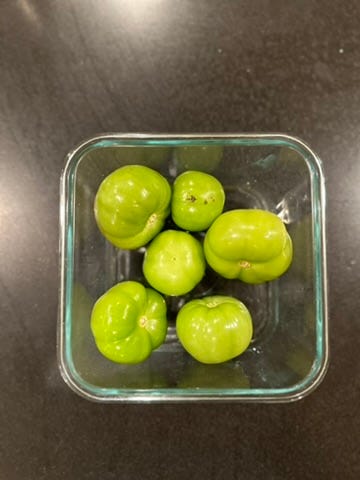“Hatred is a poison served in three cups. The first is when people despise those they desire — because they want to have them in their possession. It’s all out of hubris! The second is when people loathe those they do not understand. It’s all out of fear! Then there is the third kind — when people hate those they have hurt.” - There Are Rivers in the Sky, Elif Shafak
I have an idea. Let’s start a book club. Not just any book club, but a national one — an ambitious undertaking that will inevitably begin in chaos and, with luck, end in communion. Choosing the book will, of course, be a nightmare. The logistics will be predictably contentious. Humans will be involved, so it will be a mess. We will inevitably screw it up.
Various factions will emerge: romance enthusiasts advocating for works heavy with passion, literary purists championing the complete Booker Prize catalog, well-meaning self-help advocates attempting to mediate, dystopian fiction devotees retreating to their carefully stocked bunkers. Fear will manifest in predictable ways—in calls for exclusion, resistance to challenging material, and the very human impulse to control the narrative.
We will not be deterred. Books make it easy to discuss things that we hesitate to discuss in polite company. Consider the phenomenon of Miranda July's All Fours: A woman embarks on a road trip to pursue her art, only to change her mind 30 miles in, move into a motel, swath it in outrageous wallpaper, and engage in sexual activity of the non-missionary position sort. The book has spawned countless discussions, lighting up chat rooms and text chains — not all approving, but all engaged, passionately, in the essential work of meaning-making.
We might begin more gently with poetry — Mary Oliver or Seamus Heaney, whose works enjoy a rare consensus of appreciation. Images of wild geese and blackberry picking, milk in a bottle, and walks along the edge of the sea might catapult us out of our endless digital algorithmic loops and into communion with something larger than our individual desires.
The worst outcome? We find ourselves distracted by the wine, laughing uproariously about a completely unrelated topic. The best that could happen? Maybe we put down the small personal screens that sometimes lead us to even smaller personal lives. We could, as George Saunders suggests, leave those devices running in the kitchen tuned to our “respective network” and meander outside.
A girl can dream. In the meantime…
I first became a fan of the award-winning British-Turkish novelist Elif Shafak when I picked up 10 Minutes and 38 Seconds in This Strange World. Opening in the moments after a woman is murdered and abandoned in a dumpster, I’ll admit that hawking the book on its harrowing opening isn’t an easy sale. When I worked as a bookseller, I’d try: “It’s about a prostitute who has been brutally abused and estranged from her family and finds love in a similarly disenfranchised group of friends.” Sometimes it worked. Usually, it didn’t (just read it; I guarantee 95 percent of you will make it one of your all-time favorites — or it will cement the fact that our literary tastes do not align, and that’s okay too!).
There Are Rivers in the Sky is the latest effort from Shafak, and it’s a successful one. The book weaves together three lives along two rivers — the Thames and the Tigris — exploring themes of preservation, ownership, and our relationship with "the other." Through Arthur, a linguistics savant born in London's slums; Narin, a young Yazidi girl losing her hearing amid ISIS violence; and Zaleekhah, a London hydrologist grappling with long-suppressed trauma, Shafak deftly demonstrates how we are all connected by nature, narrative, and ancestral wisdom. When a narrative toggles between different perspectives, it is natural for the reader to be drawn to one over another and compare the relative success of each section. So it goes in this work, though I never yearned to be with a character I was not.
In one particularly affecting scene, when Arthur protests offered hospitality during his Mesopotamian research, his host responds: "Not a burden. We believe an onion shared with guests tastes better than roast lamb." This simple statement beautifully illustrates one of the book's more prominent themes: we are better together than apart.
There Are Rivers in the Sky is a departure from my bedside table's current culture/bestseller-influenced fiction stack. I’ve been curious about why I’ve been reading a lot of, for lack of a better term, much-discussed books as of late. Many are wildly creative. Some make me laugh. The shorter works appeal to my checking-off-the-list side as I tick off title after title. Some of it is great, but much of it is less so. In There Are Rivers in the Sky, Shafak refuses to reflect our own experiences back to us. Instead, she offers a centuries-spanning narrative that cuts to the heart of humanity's eternal struggle with otherness while imploring the reader to engage deeply with what has come before. Shafak is precise: never didactic, yet unafraid to illuminate essential truths about our divided world.
Everything in the book is connected through a single drop of water. Shafak is a careful wordsmith, and though, at a few points, the thematic elements felt a wee bit overplayed, I emerged from each reading session eager to get back to it. What she does achieve, with great success, is raise the truth that no matter how deeply divided we as humans appear to be, we are inextricably connected by nature, by stories, by what we learn from previous generations. It is a truth that rings true now more than ever.
The pandemic enticed many of us to rediscover sustained reading. I found myself immersed in Hilary Mantel's Wolf Hall trilogy, relearning the art of prolonged attention. Now, as we navigate a world intent on capturing our attention with soundbites and salacious headlines, long-form reading has become both more urgent and more challenging.
So let us imagine this national book club, complete bowls of oil-slicked briny olives and spicy stinger-topped pizzas (but please, let’s all agree to steer clear of the crudité). Ice-cold grapes and room-temperature camembert. Nicola Lamb's Miso Walnut Double-Thick Chocolate-Chip Cookies (see below) and platters of persimmons, pomegranate, and glistening slices of golden kiwi.
Let’s set the table. Lay down our devices. Light the candles. Gather together with one or a million others. Open our hearts to art, to stories, to the hard-learned lessons of previous generations. Let us remember that what came before can fuel us as we work towards a better future.
Signing off with a capitalistic exhortation: I can’t think of too many fiction lovers for whom this book wouldn’t make a solid holiday gift. Onward.
Speaking of delicious treats you might share with those you love: Jeni’s 2024 holiday bundle. Also, don’t sleep on the Miso Butterscotch Brownie, Pumpkin Seed and Rye Cookie, Sweet Potato Marshmellow Praline, and Bay Leaf Cheesecake flavors.
Speaking of books that would make a spectacular holiday gift: When Nigel Slater, Yotam Ottolenghi, and Dorie Greenspan all team up to support a book, you know it will be good. I've been waiting for this beauty for a while and can’t wait to report back on what we make on Maplewood Drive.
Speaking of things we can all agree on: I featured Ottolenghi’s latest cookbook in my October Round-Up. Last night, I made the Polenta Pancakes with Spiced Corn Salad and — not to toot my own horn, but — my kids said I should open a restaurant. Sometimes, diving into an Ottolenghi recipe can feel like a big to-do: ingredient lists are long and sometimes a bit esoteric, and they often require three, four, or six pans to get the job done. This one is worth it. Probably 45 min start to finish. I substituted a few spices for ones I already had on hand. Bonus: I made super quick, super delicious tomatillo salsa with a handful of tomatillos I got at the farmer’s market a few weeks back. Beans were leftovers from taco night, refried with white onion, garlic, and an unreasonable amount of olive oil. I will make these again very soon.










